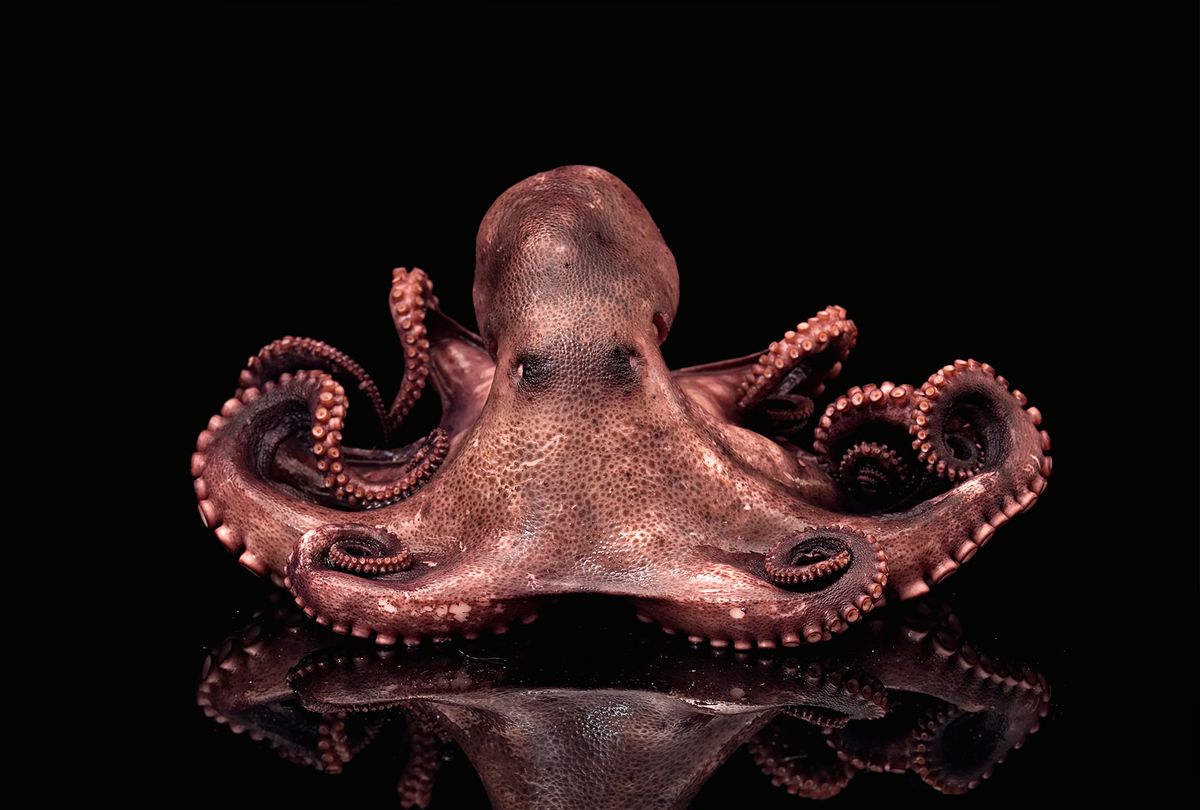In the Academy Award-winning documentary "My Octopus Teacher," a South African man named Craig Foster befriends a wild octopus while diving and exploring the nearby ocean. Among many other marvels, he observes how the cephalopod's tentacles are remarkably dexterous, rapidly manipulating tool-like objects and conquering fearsome prey. Humans, by contrast, struggle to use tools underwater even under the best of circumstances; the slipperiness imbued by water makes underwater dexterity a rare skill.
But mankind no longer must suffer to manipulate wet or slippery objects, for scientists have invented an octopus-inspired glove that mimics the cephalopods' tentacle skin. This "wearable adhesive glove" enabled researchers to "pick up and release a variety of items underwater including flat, curved, rigid, and soft objects."
"These capabilities mimic the advanced manipulation, sensing, and control of cephalopods and provide a platform for synthetic underwater adhesive skins that can reliably manipulate diverse underwater objects," the researchers write of the technology, which the press release dubs the "Octa-glove."
RELATED: Do octopuses have souls? "My Octopus Teacher" and the question of octopus consciousness
The breakthrough comes from a new study led by mechanical engineering professor Michael D. Bartlett and researchers from Virginia Tech. Writing in the journal Science Advances, the co-authors explain how the Octa-glove allows human beings for the first time to securely grip objects under water with the agility and ease of an octopus. That statement is more than just a poetic flourish; the scientists were inspired by how real-life octopuses can hold objects with strength and yet maintain a delicate touch. Using robotics and soft materials, Bartlett and the other scientists covered their glove in tightly integrated sensors and with synthetic suckers similar to those used by octopuses.
"This combination of switchable attachment, sensing, processing, and control is what we find so fascinating about the octopus and was the inspiration for our octopus-inspired adhesive skin that we integrated into a wearable glove."
If it sounds challenging creating a glove that allows human hands to more effectively manage objects in water, that's because it is.
"Most man-made adhesives do not work under water, especially if they are meant to strongly hold and then release on demand," Bartlett told Salon by email. "Additionally, to manipulate objects under water, adhesion must be able to activate and release quickly. The octopus displays this ability with their suckers." To solve those problems, the team used a rubber stalk capped with "a stretchable pneumatically actuated membrane" to create adhesion, and in particular for that adhesion to be able to turned on and off with extreme rapidness.
Want more health and science stories in your inbox? Subscribe to Salon's weekly newsletter The Vulgar Scientist.
Bartlett also elaborated on the specific ways that the octopus' unique anatomy informed the scientists' decisions as they designed their glove.
"In addition to eight arms and over 2000 suckers, an octopus has millions of mechanical and chemical sensors on their arms and suckers, allowing an octopus to feel and taste their environment," Bartlett explained. "The neuroanatomy of the octopus is also very interesting, in that neurons are distributed throughout their body, including in their arms. This allows an octopus to individually control their suckers by processing information from their sensors in their neural system."
The engineers carefully designed the glove so that "all the user has to do is bring their hand near an object and the glove will immediately attach without any additional user input."
He added, "This combination of switchable attachment, sensing, processing, and control is what we find so fascinating about the octopus and was the inspiration for our octopus-inspired adhesive skin that we integrated into a wearable glove." The engineers carefully designed the glove so that "all the user has to do is bring their hand near an object and the glove will immediately attach without any additional user input."
There are likely to be many practical applications for the glove, in fields as diverse as health care, manufacturing, and underwater robotics. One could also imagine — more theoretically than actually, as this would have to involve a commonly affordable glove rather than a newly-invented one — an Octa-glove that would allow ordinary people to enhance recreational activities. After all, it is not like the octopus only uses its tentacles for work.
"With such a highly intelligent creature, it's likely to get bored," Pippa Ehrlich, co-director of "My Octopus Teacher," explained to Salon in an interview last year. "It wants to explore. It wants to be entertained. But it's also completely liquid and soft. It has no physical protection against anything, apart from being able to hide in small spaces, because its liquid adds this incredible creativity that these animals have developed over time in order to receive predators and catch prey."
Bartlett, for one, is a fan of the hit movie.
"The 'My Octopus Teacher' film was very motivational," Bartlett told Salon. "Getting a chance to see an octopus live in its environment I think gives scientists and engineers inspiration. It really gave me a sense of how special these organisms are. They demonstrate extraordinary functions and behaviors while being self-healing and being composed nearly entirely of soft materials. What if we could create man-made materials that could do the same thing?"
For more Salon articles about octopuses:



Shares